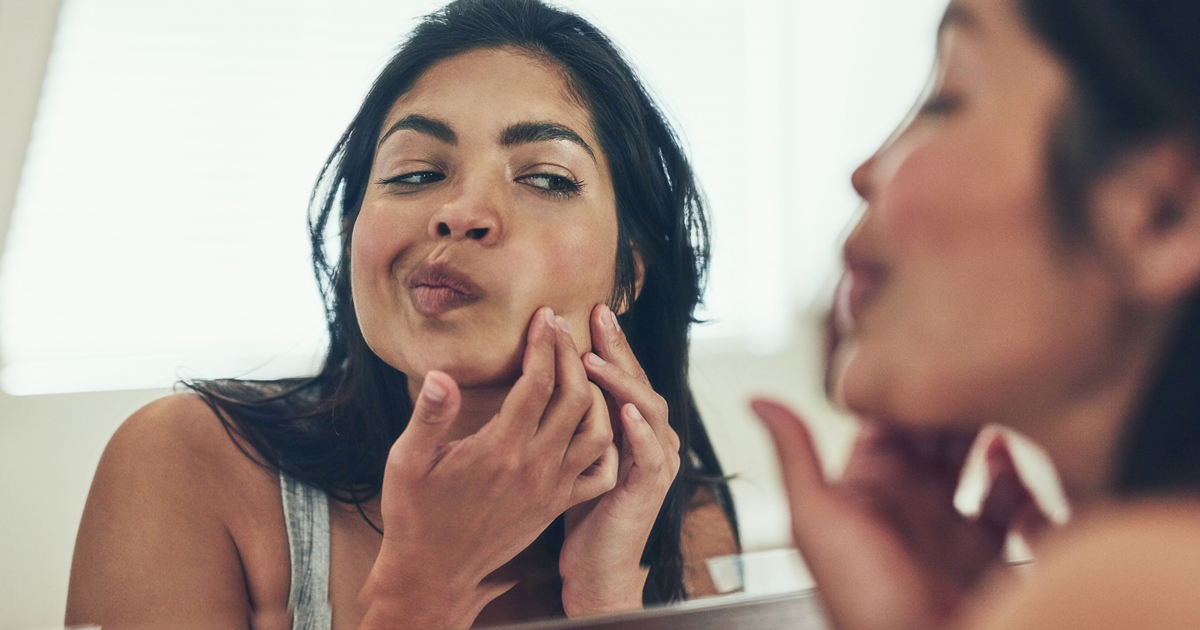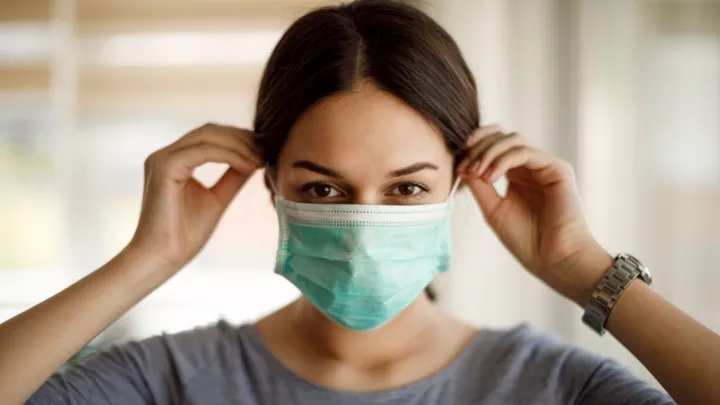Hormones and cystic acne: what you need to know

Wouldn't it be wonderful if acne stopped showing up after our teenage years? Unfortunately, the reality is many people experience breakouts well into their adult years and even later in life. While occasional pimples can be normal, cystic acne requires special care and attention.
Cystic acne and the part hormones play
Cystic acne is a severe type of acne where pores in the skin become blocked, which can lead to inflammation and infection. The condition often affects the face, upper trunk, upper arms, and can extend to other areas of the body. "Cystic acne describes deep inflammatory pockets of acne below the surface of the skin. It tends to cause more painful acne lesions which can lead to more aggressive scarring. Hormones are a common trigger for cystic acne and can sometimes worsen things along the chin and jawline in particular," says dermatologist Jennifer Adams, MD. "There are several different types of acne ranging from the milder comedonal bumps, to papulopustular, to the most inflammatory type called nodulocystic. The more aggressive forms of acne tend to cause more inflammation and affect deeper levels under the skin. Cystic acne tends to refer to those deeper seated zits."
Cystic acne can be caused by a variety of factors
It's important to note the condition is rarely linked to diet (yes, you can keep your chocolate on the grocery list) or poor hygiene, and can present in men as well as women. There are multiple factors that can contribute to the development of cystic acne, including:
- Hormone imbalance – particularly fluctuations of estrogen and progesterone
- Certain medical conditions, such as polycystic ovarian syndrome
- Medications such as testosterone, lithium and steroids can aggravate acne
- Environmental risk factors
- Genetics is linked to a higher risk of developing cystic acne
- Stress is known to play a big role in many skin conditions and rashes, including acne
Treatment options
Since treatment plans are tailored specifically to each patient, their health history and other numerous factors, it helps to seek out the help of a doctor to treat problematic acne early. "Cystic acne can be aggressive and lead to scarring. Often the over-the-counter products are insufficient to keep flares at bay, so I recommend seeing your board-certified dermatologist if you are struggling with this condition," says Dr. Adams. "Dermatologists create a plan to limit any possible aggravating external factors with skin care or occlusion, evaluate for possible aggravating medical conditions and medications, and create an individualized treatment plan. Often, topicals are insufficient to completely clear cystic acne, but there are many options to explore to find the right individualized approach."
Recommended treatment options are greatly dependent on factors like skin type (oily/dry/sensitive skin), scarring issues, pigment or acne stains and more. Moisturizer and sunscreen are always a good idea though. Look for products labeled noncomedogenic (non-pore clogging) and fragrance free or hypoallergenic. One last piece of advice? "Don't pick at the spots! It can worsen scarring and darkening of the skin (and often nothing pops anyway)," advises Dr. Adams.
We understand dealing with acne can be emotionally distressing and can increase the already existing stress in your life. If you suspect cystic acne may be an issue for you, contact us to set up an appointment with a board-certified dermatologist. We're here to help.






